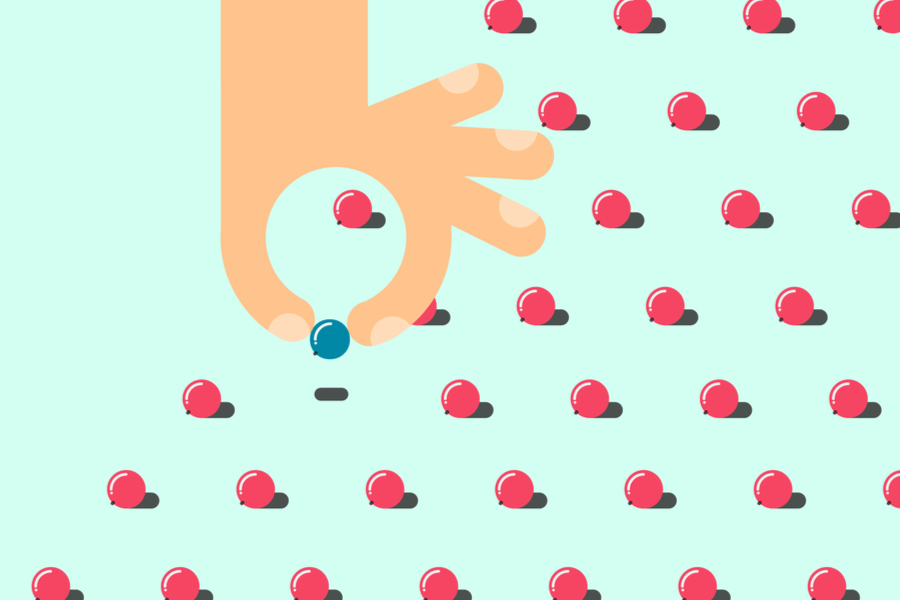Confessions of a Recovering Perfectionist: How to Unleash Your Potential

A few years into my career as a London City lawyer, I reached a crossroads. It isn’t all glamour and shiny skyscrapers, as the TV series Suits might have you believe. Although law can be extremely rewarding, the job can take a huge toll in terms of long hours and immense pressure. And this comes with big personal sacrifice.
Like many high-achieving professionals, lawyers habitually fall into the bracket of ‘Type A’ personalities, defined as ambitious, competitive and striving for success. This often means work and success first, wellbeing and happiness second. Perhaps unsurprisingly, it comes with a price tag on mental health. It also tends to weigh more heavily on women, who are expected to effortlessly juggle work, children, homelife and everything else in between.
Ultimately, I came to the realisation that I could continue to put my work ahead of myself at enormous personal cost or I could do things differently. I chose the latter. I loved the law, but I loved ‘me’ more. I wanted to work out how I could be successful in my career, but also – and most importantly – how I could feel well in myself and live a happy life.
I chose to re-train as a psychotherapist, so that I could learn how to stay healthy in mind, body and soul. In fusing my newfound mindfulness and psychological and therapeutic knowledge with years of on-the-ground grassroots legal graft, I realised that, in the world of work, we need to feel good in ourselves to reach our potential. Exhausted and burnt-out individuals are not a recipe for success – and they don’t make for happy people.
Plus, to be creative and innovative (which all companies want) we need to feel energised, and stay connected to our passion for life, whatever form that takes. My goal, as a mindfulness practitioner, psychotherapist, trainer and lawyer, is to help people reach their potential professionally, and to feel fulfilled and happy in life generally.
Nobody’s perfect
One particular struggle which holds many of us back is perfectionism. In the corporate world, it is often a given that perfectionism is a prerequisite of excellence. It is even worn as a badge of honour. In the early years of my career, when I was giving my all and then some, I believed that if I paid better attention to detail, researched more, argued my case differently or kept my nose to the grindstone longer (when I was already working into the early hours) then I would achieve a ‘better outcome’ or become a ‘better lawyer’. But I have come to realise there is a heavy price to pay for that sort of mindset. Striving for perfectionism affects our mental health, it wears us down over time, leaving us exhausted, feeling as though our efforts are never quite good enough, and ultimately that we ourselves are not good enough. Fear of failure and inadequacy are blended together in that toxic inner pressure cooker of turmoil to create stress, and we feel unable to unburden ourselves through fear of appearing weak, less than perfect, or (dare I say it) not ‘good enough’.
The funny thing is that until very recently I considered myself a ‘recovered’ perfectionist. Some smug little place inside of me thought I had ‘worked through’ my perfectionist tendencies. As far as I was aware, I no longer put pressure on myself in the way I used to and believed I could take a lot more in my stride. With the passage of time and a toolkit of mindfulness built up, I considered that I had learned to be more pragmatic and realistic.
How pride comes before a fall.
The truth about procrastination
At a recent masterclass of bestselling author and productivity consultant David Allen, the topic of procrastination came up. To my surprise, David explained that the biggest cause of procrastination was not laziness or an inability to focus (for which I had been reprimanding myself): it was in fact the hunt for perfection. This was a light bulb moment for me. It now seems obvious that if we are afraid to create something that is anything less than ‘perfect’, then putting off doing it is a natural result.
As my new learning started to sink in, I realised how an undercover perfectionist mindset was secretly controlling my life and dictating the parameters of what I believed I could and could not achieve. How many challenges was I subconsciously avoiding because I was fearful that I might not overcome them? How many opportunities was I missing because of my self-limiting beliefs? I realised I was not reaching my potential because of a fear of failure, defined in my mind as anything less than that abstract, impossible notion of perfection.
If we don’t reframe negative thinking then the chances are that we will never reach our full potential. We will become imprisoned by procrastination and avoid challenges, because rigid all-or-nothing thinking inevitably culminates in a lack of creativity. The truth is: you are likely to be your own biggest roadblock.
Take a moment right now and let this sink in. Ask yourself the following question: to what extent are you not daring (professionally and personally) to live the life you want because you tell yourself that it is unachievable?
The gender confidence gap
It probably comes as no surprise that feelings of self-doubt and lack of confidence plague women more than men. Katty Kay and Claire Shipman have confronted the art and science of self-assurance (and how it affects women disproportionately) in their book The Confidence Code. They explain that women are more likely to be perfectionists and that perfectionism is a key killer of confidence. We hold ourselves back from answering questions, applying for new jobs, and asking for pay rises until we are 100% sure we can predict the outcome. Women have been found only to apply for a promotion when they believed they met 100% of the qualifications necessary for the job, whereas for men this was only 60%. This needs to change, not least, from a career perspective, so that more of us fill senior leadership positions and reach our potential. As Katty and Claire say, “Confidence is the stuff that turns thoughts into action”.
Happily, neuroscience shows that habits and ways of thinking are not set in stone. We can rewire our brains to change the way we think and act through meditation, mindfulness and self-compassion.
How to overcome self doubt
Tara Brach, psychotherapist, meditation teacher and leading author on self-compassion, has come up with a helpful technique known as RAIN. This stands for recognise, allow, investigate and nurture. When you next get caught in the throes of self-doubt and insecurity, try this out.
Firstly, stop what you are doing, take a deep breath and ‘recognise’ what is happening. We are often stuck in reactionary mode without even realising it. Simply, stop and label the actual experience in the moment, without judgement.
Secondly, ‘allow’ the experience, just as it is: this includes thoughts, feelings, physical sensations and emotions. Just stay with whatever arises, without trying to fix it or push it away, even if it is uncomfortable.
Thirdly, ‘investigate’ what is happening with interest and care, without allowing negative thoughts or self-judgement to take over. Try to approach yourself as you would a friend, with curiosity, compassion and empathy.
Finally, ‘nurture’ with self-compassion. A common misconception is that self-compassion is selfish and an excuse for spoiling yourself or letting yourself off the hook. In fact, it is about learning to recognise your own suffering and realising that you matter. It is about practising self-care so that you can feel well and empowered in yourself. The question to ask yourself is what part of you is in pain right now and what does it need? Can you heal it with kindness?
The fruit of RAIN is that we can learn to recognise that those self-limiting thoughts and beliefs do not define us. We don’t need to stay caught up in the ‘trance of unworthiness’ as Tara puts it. When I catch myself now cleaning the back of some cupboard rather than doing the assignment I need to do, I stop myself. I breathe. Somehow, in just noticing the familiar game my mind is playing, I am able to find a route through the fog of procrastination. I can smile and accept that whatever wonderful ‘imperfection’ I will create is more than good enough.
Helen Pamely is Partner at Rosling King LLP, a psychotherapist in training and a mindfulness practitioner. Follow her on Instagram













